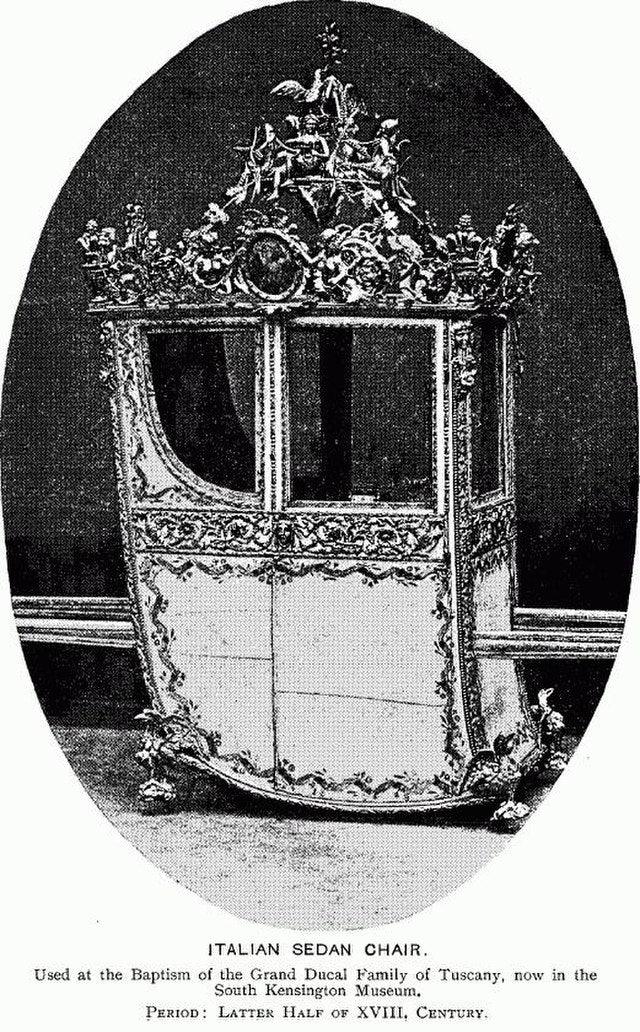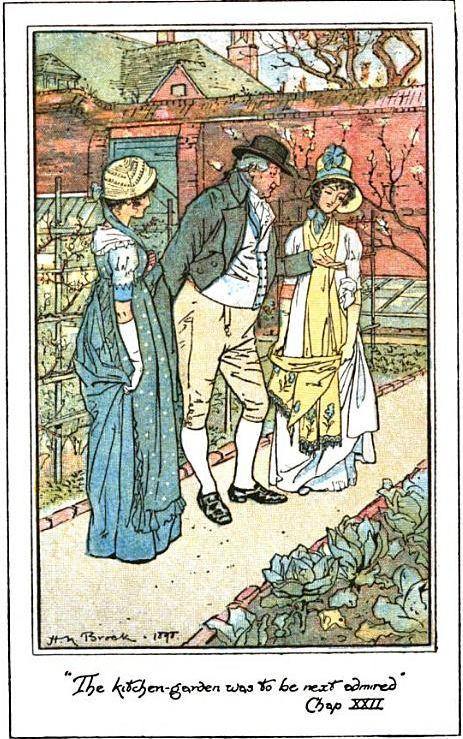The Pleasure of Walking
It was a very fine November day, and the Miss Musgroves came through the little grounds, and stopped for no other purpose than to say, that they were going to take a long walk, and therefore concluded Mary could not like to go with them; and when Mary immediately replied, with some jealousy at not being supposed a good walker, "Oh, yes, I should like to join you very much, I am very fond of a long walk...I cannot imagine why they should suppose I should not like a long walk...Everybody is always supposing that I am not a good walker; and yet they would not have been pleased, if we had refused to join them. When people come in this manner on purpose to ask us, how can one say no?"
Persuasion

Walking was very much a part of life for the Regency Ton. A stroll in the park during the fashionable hour, while not as impressive as driving or riding, still provided a chance to see and be seen. There was also the all important shopping expedition to the exclusive shops of Bond Street, where the elite would be seen promenading from shop to shop after they drove or rode to the area. Grooms busily walked horses while they waited or returned home to come back again at the appointed hour. Gentlemen might walk to their clubs if they had rooms nearby.
By and large they never walked as a means of travel. Walking was recreation- a chance to see and be seen. It was left to the lower classes to walk to work. A seamstress would walk to work and a milk maid would walk door to door selling her morning milk. Wealthy areas like Mayfair had paved streets and servants and municipal workers to keep the streets clean. Merchants paid workers who kept the sidewalk and street clean in front of their businesses. Poorer parts of London were often filthy. Street sweepers made their living sweeping a clean crossing to save footwear from the filth of the streets. Jane Austen's novels, "three or four families in a country village", focus on the upper middle class.
Throughout them she reveals her own love of country walks. In Northanger Abbey Catherine Morland and the Tilney's choice of walk is to the dramatic natural scenery of Beechen cliff near Bath. In Sense and Sensibility, the overly romantic Marianne is a great lover of the natural beauty of walks and wildflowers. In Persuasion, several important plot elements are revealed during walks in the country or by the sea. The hero of Emma, Mr. Knightly, is so fond of country walks that he seldom uses his carriage. Walking was very much a part of the fashionable fad for visiting beautiful places. Landscape gardens like Stourhead or Stowe offered paths from which to enjoy the carefully constructed views. Admission to Stowe was free; the only requirement for visitors was that they walk the paths so that they would fully appreciate the process of revealing each new view. The owners and landscapers even offered guidebooks for the visitors.
"They entered the woods, and bidding adieu to the river for a while, ascended some of the higher grounds; whence, in spots where the opening of the trees gave the eye power to wander, were many charming views of the valley, the opposite hills, with the long range of woods overspreading many, and occasionally part of the stream. Mr Gardiner expressed a wish of going round the whole Park, but feared it might be beyond a walk. With a triumphant smile, they were told that it was ten miles round. It settled the matter; and they pursued the accustomed circuit; which brought them again, after some time, in a descent among hanging woods, to the edge of the water, in one of its narrowest parts. They crossed it by a simple bridge, in character with the general air of the scene; it was a spot less adorned than any they had yet visited; and the valley, here contracted into a glen, allowed room only for the stream, and a narrow walk amidst the rough coppice-wood which bordered it. Elizabeth longed to explore its windings;"
Pride and Prejudice.
With permission, we've reprinted some words from Sharon Wagoner on the significance of walking in Austen's novels. Read on for more!
The picturesque movement made visiting locations with dramatic natural scenery the new mode. In Pride and Prejudice, Jane Austen describes walking through the grounds of an estate at some length when Elizabeth Bennet visits Pemberley with her relatives, the Gardiners. The Gardiner’s original intention was to visit the Lake District, but Mr. Gardiner’s business is so demanding that he is unable to be away for so long, so they take a shorter trip to Derbyshire, instead.
From the book, we are already aware that Elizabeth's favourite recreation is a country walk. She often walks near her home and even the Bingley sisters allow her to be "an excellent walker." When visiting the Collins' she soon has a favourite walk on Lady Catherine's estate, Rosings. When she finally visits Pemberley, she displays her love (or is it Jane's?) for natural beauty in her preference for the unadorned beauty of the little stream in the quote above. Elizabeth is also revealed to be an admirer of Uvedale Price's Essays on the Picturesque in which he criticises the smoothness of Capability Brown's landscapes. Price's view is that dramatic changes in elevation and light and shadow produce the most beautiful landscapes. Elizabeth would seem to be in agreement with Price when she prefers the glen with a stream and narrow walk.
Enjoyed this article? If you don't want to miss a beat when it comes to Jane Austen, make sure you are signed up to the Jane Austen newsletter for exclusive updates and discounts from our Online Gift Shop.



Leave a comment
This site is protected by hCaptcha and the hCaptcha Privacy Policy and Terms of Service apply.